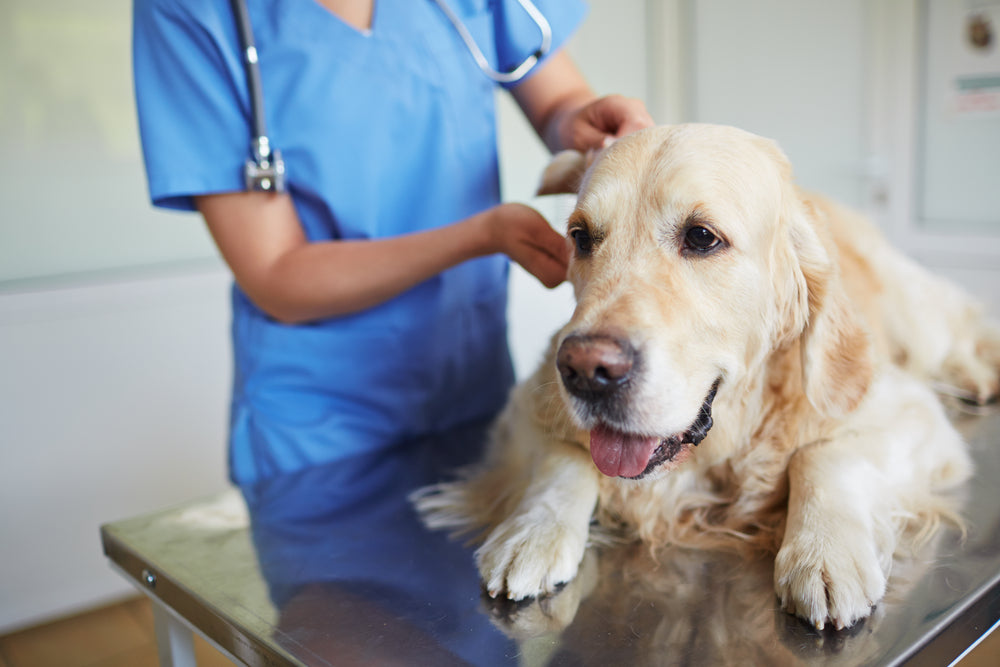How to Have a Great Visit to the Vet With Your Dog

When you add a dog to your family, one of the most important relationships you should develop is with a veterinarian. The first exam your vet will recommend for any tests and vaccinations to provide an important foundation for the future when your pet has subsequent wellness exams, or if your pet becomes ill.
However, taking your dog or cat to the veterinarian is not always a fun experience for your pet. For some dogs, the sounds and strange smells can cause anxiety for a pet, not unlike people having to go to see their dentist.
So how can you have a great veterinarian visit with your dog? Do you want to make the most out of every vet visit and make the experience as great as possible?
FINDING THE RIGHT VETERINARIAN

First, find the right veterinarian for you, your expectations, and that fits your budget. Ask friends and neighbors for advice. Find a veterinarian and staff that you feel comfortable with and who meets your needs and just as importantly those of your dog. You want to choose a veterinarian that seems interested in listening and answering your questions. Also realize that although a good veterinarian knows a lot about many things, they may not always know every answer. The sign of a good veterinarian should be one that is willing to research or if needed will refer you and your pet to a specialist for further care.
CONVENIENCE
Having a veterinarian that is close by is ideal not only for regular visits or issues but especially if your pet becomes ill or has an emergency. It is best to ask about after-hours emergency care before an emergency happens. Many veterinarians may refer you to an emergency clinic for after-hours care or may charge an additional fee for emergency appointments.
BUDGET
Before deciding to add a new dog to your family, familiarize yourself with health care costs and have a plan for how to most effectively meet those costs. Just like with people, all pets need health care including wellness care, illness care, dental care, and sometimes emergency care. Medical care for animals can become costly, and it’s important that you budget appropriately for these expenses.
Invest in health insurance or separate savings account for your pet to minimalize. This may cause mental anguish of having to make decisions based on costs. Every dog will need medical treatment at some point and it’s important to be realistic and aware of these costs and have a way to pay for them when they do occur. Also be aware that regular health screenings, vaccinations, and dental care are usually less expensive than waiting until any health problems become serious.
COMMUNICATION
To have a great visit with your dog and veterinarian effective communication with your veterinary team is a two-way street. Prior to your appointment, take the time to write down your concerns and questions. Make notes on the responses so you leave with accurate information. If you are unclear on something your veterinarian says, ask for a further explanation. It’s not unreasonable to ask about the reasons for and costs of medications and tests. They may also be able to give you other possible options if the cost is a concern.
TIME
With more people getting new dogs and a shortage of veterinarians pet clinics and hospitals are busier than ever. Always allow ample time to get to your veterinarian’s office prior to your appointment. Many veterinarians are no longer able to accommodate late appointments. Some may have to limit the time they spend with your dog if you arrive late.
It’s best to arrive a few minutes early so that you can complete any necessary paperwork. If your veterinarian offers patient forms online, fill them out at home and bring them with you so you are ready for your visit. The less rushed you are, the less stressed your dog will feel.
TOPICS TO ADDRESS WITH YOUR PETS VET
Be prepared to ask your veterinarian about a variety of topics related to your pet’s health and well-being. This is especially important for your dog’s first visit. Topics should include:
- Dental Care
- Behavior
- Diet
- Exercise
- Health problems
- Parasite protection
- Training
- Vaccinations
- Wellness care
Even if your pet was checked out by a veterinarian when they were at a shelter, or before you obtained your dog from a responsible breeder, you should still make an appointment for your pet within the first week or two. Your dog may be due for additional medications to keep them (and others) safe in their new home.
Always bring any adoption papers from the shelter or paperwork from your responsible breeder. This will help the veterinarian get to know your pet’s medical history, and which vaccines they’ve already had, or may still need.
With a new puppy or dog, or if changing veterinarians, always bring a list of any medications. How often they take them, as well as the food you’re feeding them. If it’s easier, bring the medications with you. You can then explain what each one is and why your pet needs it.
Conclusion
So in order to have a great visit with your dog and veterinarian your veterinarian should be your partner in the health and care of your pet. Approaching your interactions with that perspective will help maximize the effectiveness of care for your dog and help it live a longer, healthier, and happier life.
Previous article

Next article

Related posts
View all-

What Can You Use Instead of Cat Litter?
Traditional cat litter is convenient, but it’s not the only option. Many cat owners look for alternatives to reduce waste, save money, or avoid chemicals found in clay-based kitty litter. Some options offer better odor control, while others are more eco-friendly or gentler on a cat’s paws.
Read Article -

How to Keep My Backyard Smelling Fresh
A clean backyard should smell fresh, unlike pet waste, smoke, or mold. Bad smells can linger, especially when dog poop, urine, or food scraps attract flies and bacteria. If your yard has a foul odor, it's time to take action. The first step is cleaning up pet feces, trash, or rotting food. A garden hose can wash away dirt and urine from artificial turf, patios, and decks. To neutralize odor, Use baking soda, white vinegar, and essential oils.
Read Article -

What Supplies Do First-Time Cat Owners Need?
Bringing home a new cat is exciting, but making them feel safe and comfortable takes more than love. First-time cat owners must prepare with the right supplies to ensure a smooth transition. From a litter box to cat food and a warm bed, having the basics ready can help your new kitty settle in faster. This guide covers everything a new cat owner needs to make their new pet feel at home.
Read Article



